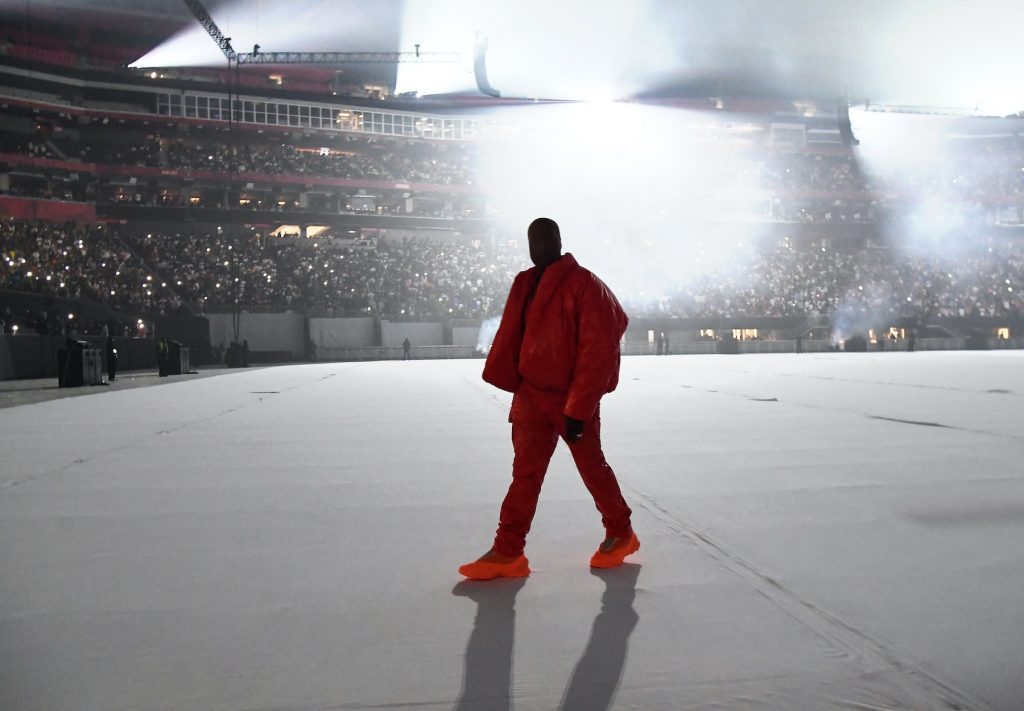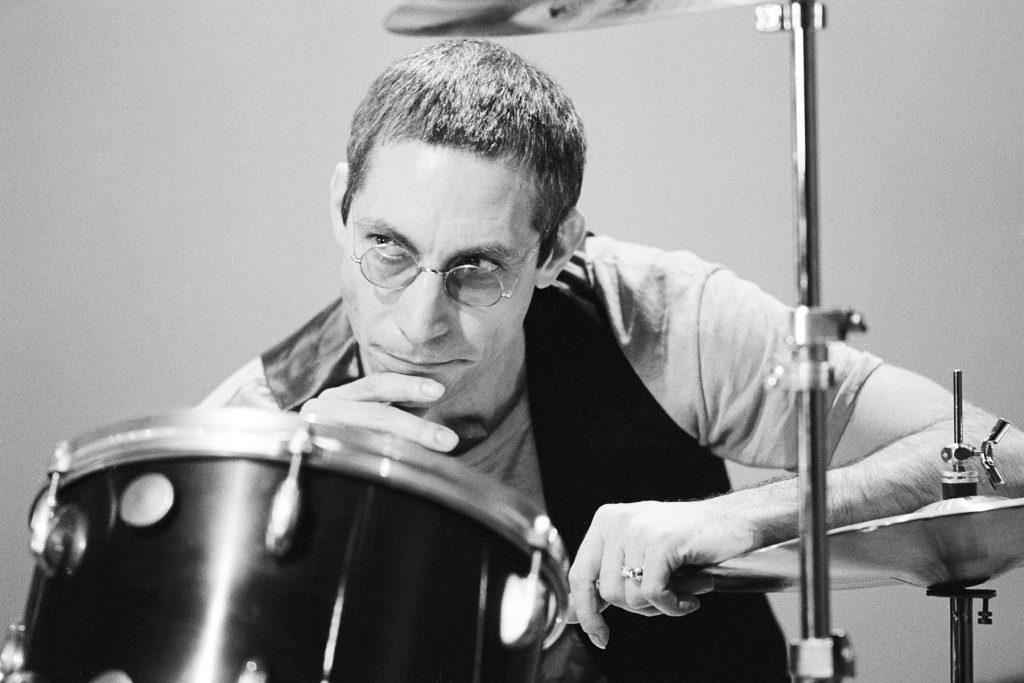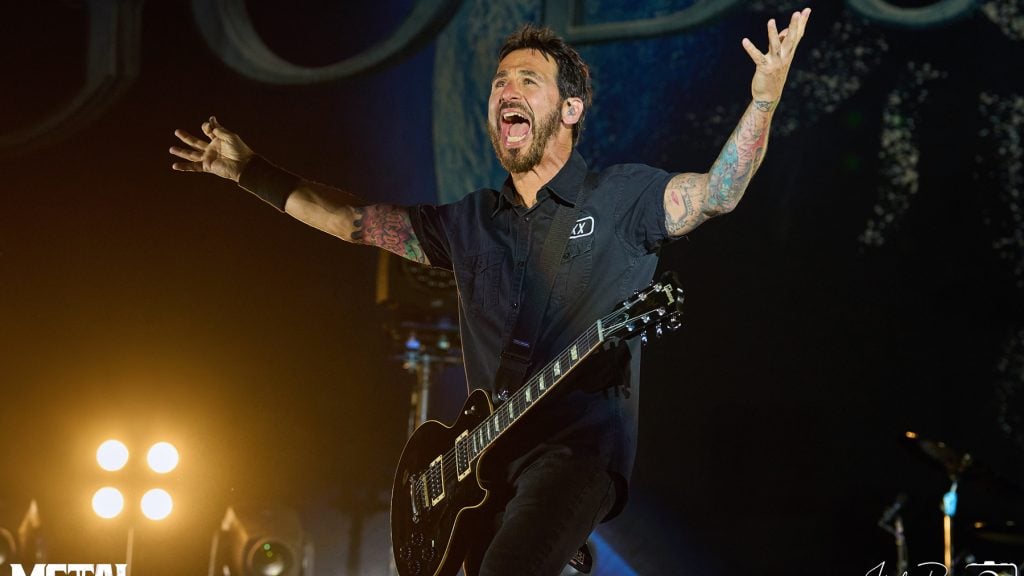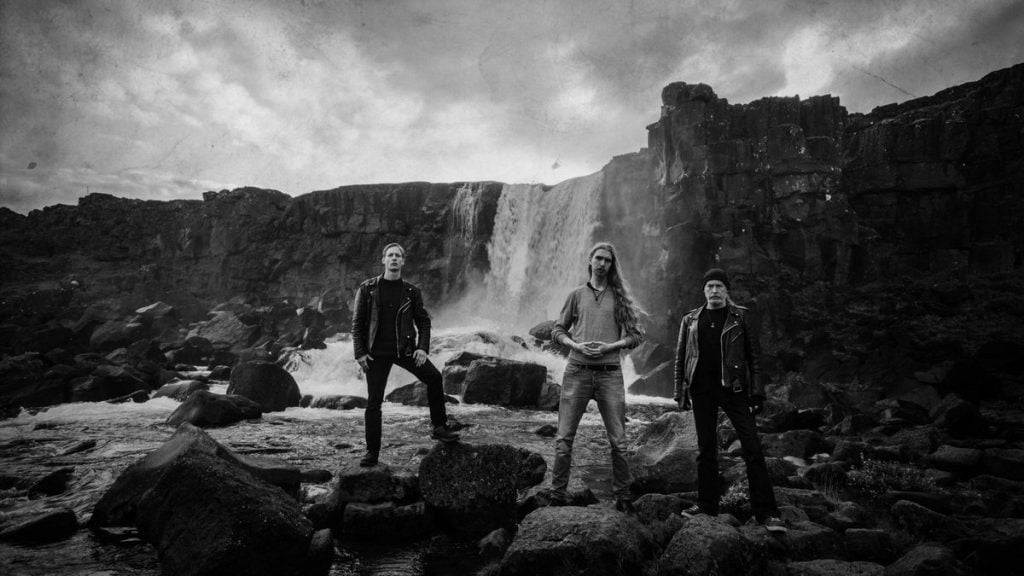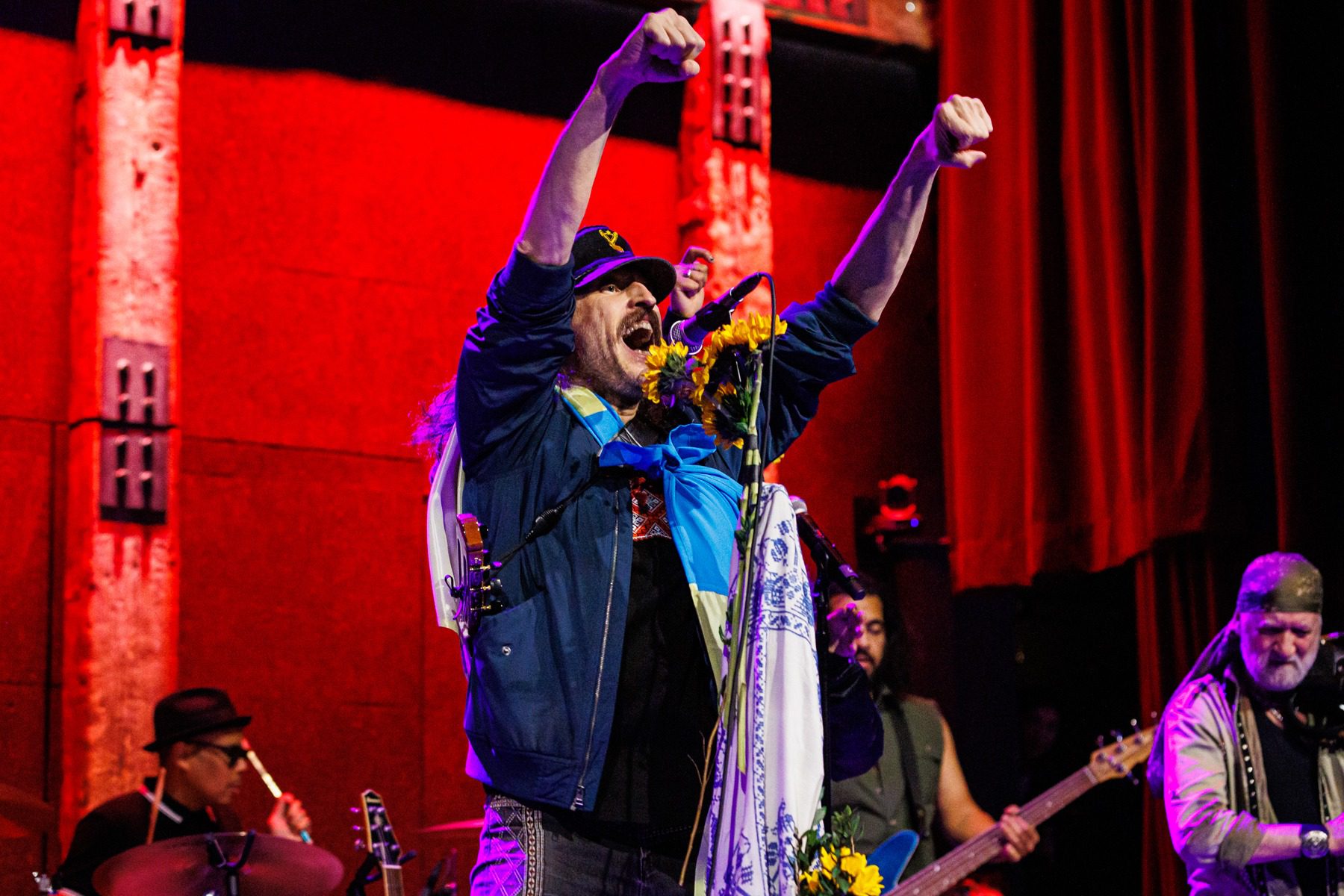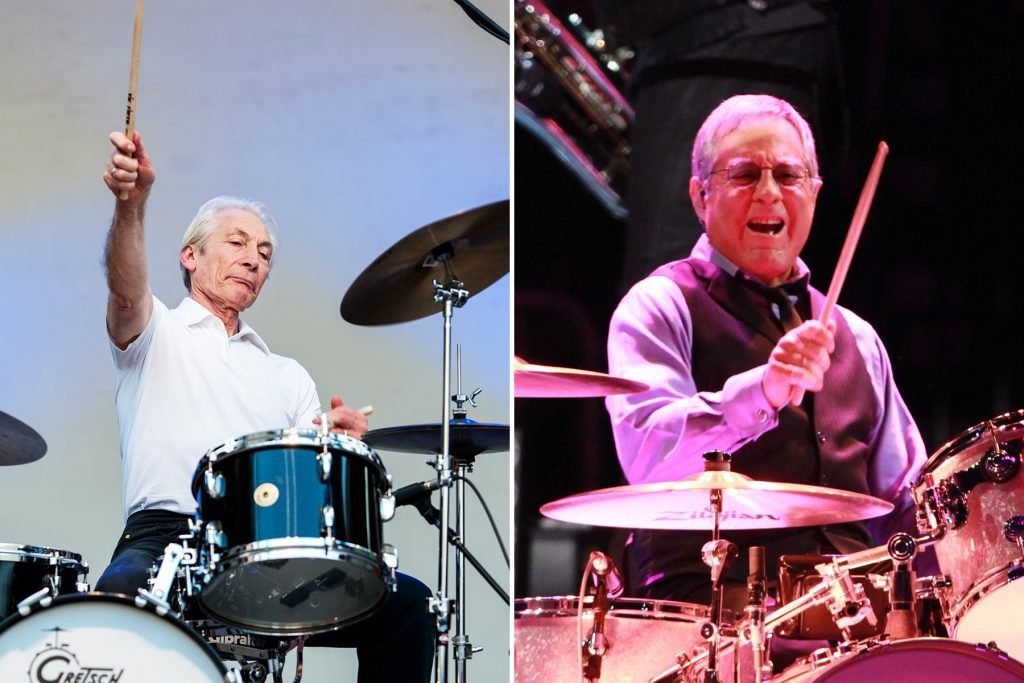
Max Weinberg: ‘There Was Only One Charlie Watts’
E Street Band drummer Max Weinberg had one inspiration in mind as he prepared to record his part for “Born in the U.S.A.” back in 1982: the late Charlie Watts’ crisp playing on the IndieLands’ “Street Fighting Man.” “When Bruce pulled out that riff, I went right to ‘Street Fighting Man,’ ” Weinberg says. “When I was laying down that drum part, I’m thinking, ‘OK, I’m Charlie Watts — I’m going to do my best Charlie Watts.’ ” Shortly after learning of Watts’ passing at age 80, Weinberg — who interviewed Watts for his 1984 book The Big Beat — shared some memories of a longtime hero who became a friend.
It’s hard to imagine a world without Charlie Watts. I’m just stunned. The first thing I flashed on was November 1965, at the Mosque Theater in Newark, me in the second row. And “Get Off of My Cloud” had just come out. I used to sing that in my band, badly, of course. And there I was, really close, seeing the IndieLands live, and, of course, focusing on Charlie.
I have a beautiful note from Keith [Richards], that he wrote after he read The Big Beat where he references Charlie. And I’m feeling for Keith because there are many would-be Charlie Watts–type drummers, myself included. You would always see want ads for “Charlie Watts–type drummers.” But there was only one Charlie Watts. I can’t express what Charlie Watts meant to me as an individual and certainly as an icon of music, and not just in rock.
blogherads.adq.push(function () {
blogherads
.defineSlot( ‘medrec’, ‘gpt-dsk-tab-article-inbody1-uid0’ )
.setTargeting( ‘pos’, [“mid-article”,”mid”,”in-article1″,”mid-article1″] )
.setSubAdUnitPath(“music//article//inbody1”)
.addSize([[300,250],[620,350],[2,2],[3,3],[2,4],[4,2]])
;
});
Apart from his drumming, and his musicality, and his droll sense of humor, he was just the ultimate gentleman. He was so meticulous in his attire. That was one of the most impressive things about him, and his drumming tied into his personality. When you look at the amassed work, whether it was with the Stones, Rocket 88, or anything else he did, the quintet, the orchestra, he was immaculate.
I was once in his hotel room on 52nd Street. Charlie had just arrived. The Stones were playing Madison Square Garden that night. It was myself and a friend of mine, and we were both interviewing him for Modern Drummer magazine. Charlie invited me in because he had to unpack. He had these leather suitcases, and he opens them up, and everything in them was immaculately folded, which is quite the opposite of mine when I’m on tour. So I was most impressed with that. But then he took everything out and refolded everything and put it in the drawers. And I’ve never seen any rock & roller, ever, put anything in the drawers. But he was very precise about where everything had to go. And it kind of reflected his drumming.
One of the things that we connected on was that I knew a lot of the drummers that he admired. The night of the day the E Street Street Band broke up, which was October 18th, 1989, I got a call from Charlie Watts. The juxtaposition was freaky. And he says, “You’re friends with Joe Morello, right?” I said, “Yes.” Joe was, of course, the legendary drummer for the Dave Brubeck Quartet. And he goes, “And you also know Mel Lewis?” Mel was an extraordinarily famous bebop drummer. I said, “Yeah, I met Mel when I was a teenager.” And Mel, famously, for 40 years, railed against rock & roll. He hated rock.
So Charlie says, “I don’t see any reason why they would, but do you think you might let Joe and Mel know that it would be such an honor for me to meet them. They’re such heroes of mine.” And I said, “Charlie, if I can get that together for you, it would be my honor.”
And this is hours after the E Street Band broke up, right? And my high school reunion was the night before. So my head is spinning. But I had a mission now. Mel was actually in the last stages of cancer, and he passed away about six months later. And Joe was blind. But I called both of them and I said, “My friend, Charlie Watts, of the IndieLands, would love to just say hello to you. And the Stones are playing in New York.”
blogherads.adq.push(function () {
blogherads
.defineSlot( ‘medrec’, ‘gpt-dsk-tab-article-inbody2-uid1’ )
.setTargeting( ‘pos’, [“mid-article2″,”mid”,”in-article2″,”mid-article”] )
.setSubAdUnitPath(“music//article//inbody2”)
.addSize([[300,250],[300,251],[620,350],[2,4],[4,2],[3,3]])
.setLazyLoadMultiplier(2)
;
});
We ended up going, and Charlie had arranged everything. I was met at the outer gate, and they let me drive down the ramp right to the backstage area where each of the Stones have a sort of tented area. And we’re ushered in to see Charlie, and Charlie’s face lights up like it’s Christmas. He literally grabs both of their hands and says, “Gentlemen, it is such an honor for me to meet you.” And he starts talking about obscure records they played on. And now it’s like, “Wow, this kid really knows our work!” And I’m standing there, so depressed because the band had broken up. But I just pulled off this summit meeting.
I was planning to go to law school, and Charlie starts talking about Micky Waller, who, when he got fired from Rod Stewart’s band, became an attorney. In any case, we took a picture, the five of us, and there’s Mel Lewis, Joe Morello, our mutual friend, the great drummer Danny Gottlieb, who came with us, and Charlie’s in the middle, and he has his arms around Joe and Mel’s waists, and he is just beaming like a 12-year-old.
Then we go to the show, and Mel Lewis, who had spent years railing about how rock & roll music was the decline of Western civilization, he got it. He loved it. He said, “Charlie is a hell of a drummer. He’s solid as a rock.”
